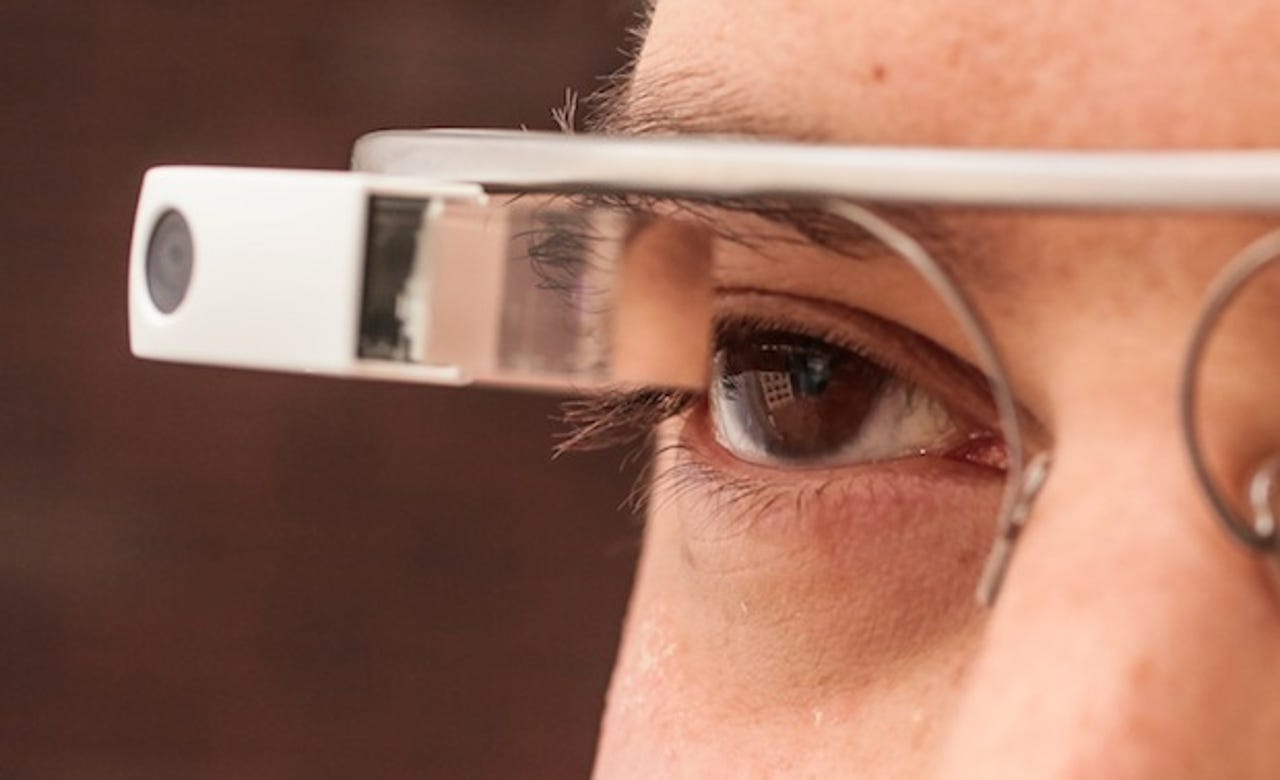Google Glass: Coming soon to a cop near you?

Cops: they protect our street, fight crime and defend the law. But in many cases they are now becoming active participants in America's already established surveillance state.
Now, one Connecticut-based firm is touting Google Glass, the next-generation wearable computer, as the saving grace for law enforcement and first responders.
Mutualink is demonstrating at APCO 2013, a conference hosting the world's largest organization of public safety communications professionals, how the technology can be used to help firefighters view building schematics, and how paramedics can access patient health records on the go.
The technology taps into FirstNet 4G LTE network, a first responder cellular network that is still under development, which allows for emergency response teams to communicate with each other through a single network. It's designed to be effective during major emergencies when traditional cell networks are flooded and unable to cope with the traffic.
In a statement released on Monday, the company said it is possible for an emergency worker to use Google Glass to "share live streaming video with other personnel and monitoring points, and simultaneously communicate with other partner agencies."
While information is not shared via the company itself, "all users manually control the sharing or un-sharing of their own media resources." The company also said there is no centralized intelligence monitoring point or cloud-based big data repository with shared access vulnerabilities, claiming that the company does not believe these models are "sound or ultimately privacy-friendly."
The company first and foremost is touting the Google Glass application as one for the "societal benefit perspective." But the news comes amid concern over headset mounted cameras and front-line law enforcement.
Surveillance cameras of all kinds are controversial in the U.S., particularly in metropolitan areas, compared to London, where residents are generally less sensitive to surveillance cameras as they are cover almost every square inch of the capital.
There has been an uptick in reports in recent weeks and months of U.S. police and law enforcement using wearable video technology.
Earlier in August, hundreds of New York police officers were ordered to wear cameras in efforts to record arrests and controversial "stop-and-frisk" searches. Judge Shira Scheindlin, who also this month criticized the sidewalk searches, ordered the move in efforts to create "objective records" of police activities.
It follows a move by Seattle's police department which fell under a similar court order earlier this year, following allegations of excessive force.
Electronic Frontier Foundation (EFF) spokesperson Dave Maass told me on the phone earlier today that the best way for agencies to use wearable camera technology is to develop solid policies that everyone sticks to, not selectively, to ensure the utmost level of transparency.
"There have been some controversies over helmet cameras, but we don't think there are legal issues with this," Maass said. "Glass is still a fairly untested technology that may have privacy issues — we're still not sure of the device's full capability yet — and police may want to keep this in consideration before widely deploying."
Jay Stanley, a senior policy analyst at the American Civil Liberties Union's (ACLU), agreed, suggesting that wearable cameras can be a good thing so long as police cannot "edit" on the fly, such as being able to switching on and off cameras. He noted there was a balance to be struck between protecting the public against police powers, but also protecting the police from false accusations.
"The accountability potential can outweigh the privacy implications," he noted.
Google Glass remains in its infancy, and as we know away from the policing front line. But if it ever makes it that far, many will not be too surprised.
